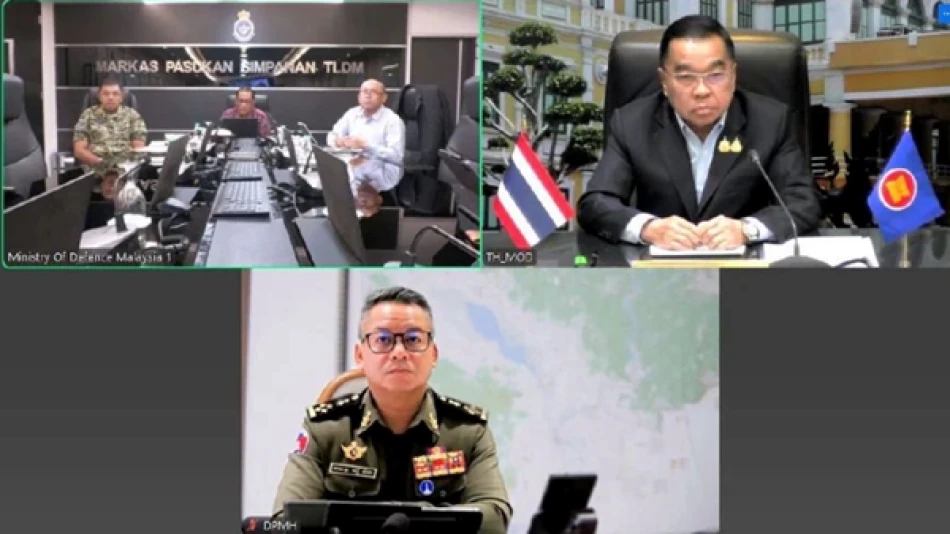
Malaysia Brokers Boundary Meeting Between Cambodia and Thailand to Resolve Territorial Disputes
Malaysia Steps Up as Regional Peacemaker in Cambodia-Thailand Border Dispute
Malaysia is positioning itself as a key diplomatic mediator in Southeast Asia, hosting critical border negotiations between Cambodia and Thailand as the two neighbors struggle to implement a ceasefire agreement. The August 7 General Border Committee meeting in Kuala Lumpur represents Malaysia's growing influence in ASEAN conflict resolution, with major powers China and the United States watching as observers.
High-Stakes Diplomacy in Kuala Lumpur
Malaysian Defense Minister Mohamed Khaled Nordin conducted a trilateral virtual meeting Saturday with his Cambodian and Thai counterparts to prepare for next week's border committee session. The meeting included Cambodia's Deputy Prime Minister and Defense Minister General Tea Seiha, and Thailand's Acting Defense Minister General Natthaphon Nakpanit.
The timing is critical. A Malaysia-brokered ceasefire was supposed to take effect Monday night, but both Cambodia and Thailand continue to exchange accusations of violations, highlighting the fragility of the peace process.
Malaysia's Strategic Diplomatic Gambit
By hosting these negotiations, Malaysia is leveraging its neutral position within ASEAN to enhance its regional standing. The country has historically played a mediating role in Southeast Asian conflicts, but this border dispute offers a particularly high-profile opportunity to demonstrate leadership.
"In the spirit of ASEAN, Malaysia is fully committed to supporting the ASEAN-led peaceful resolution process," Mohamed Khaled stated, emphasizing the country's alignment with regional values while positioning itself as an indispensable broker.
Great Power Competition in the Background
The presence of both Chinese and American observers at the August 7 meeting underscores how local border disputes in Southeast Asia have become proxies for broader geopolitical competition. Cambodia's close ties to Beijing and Thailand's traditional alliance with Washington add layers of complexity that Malaysia must navigate carefully.
This observer arrangement mirrors similar diplomatic formats where ASEAN states have managed to maintain centrality while accommodating major power interests—a delicate balance that has become increasingly challenging as US-China tensions escalate.
Historical Context and Regional Implications
Border disputes between Cambodia and Thailand have persisted for decades, often flaring around the ancient Preah Vihear temple complex. Previous conflicts in 2008-2011 resulted in military clashes and civilian casualties, making the current diplomatic track crucial for regional stability.
Malaysia's mediation efforts echo its successful role in other regional conflicts, including the Mindanao peace process in the Philippines. However, the Cambodia-Thailand dispute presents unique challenges given both countries' sovereignty sensitivities and external power involvement.
What Success Would Mean for ASEAN
A successful resolution would validate ASEAN's conflict management mechanisms at a time when the organization faces criticism over its handling of the Myanmar crisis and South China Sea tensions. For Malaysia specifically, diplomatic success could enhance its bid for greater international recognition and potentially support its aspirations for UN Security Council membership.
The preliminary meetings scheduled for August 4-6 will test whether both sides are genuinely committed to dialogue or merely going through diplomatic motions. Malaysia's challenge will be maintaining momentum while managing the competing interests of all stakeholders, including the major power observers whose presence could either facilitate or complicate the negotiations.
Most Viewed News

 Layla Al Mansoori
Layla Al Mansoori






